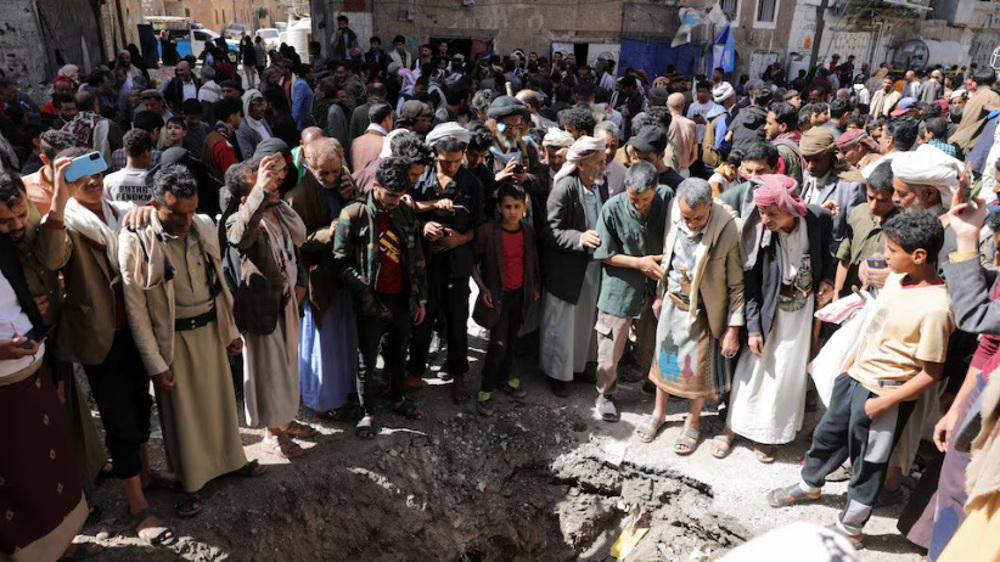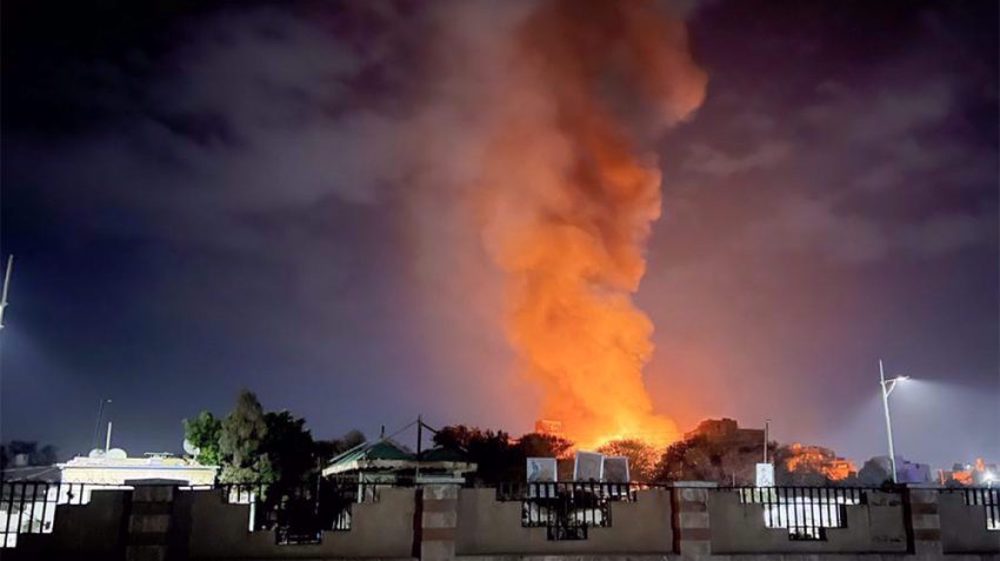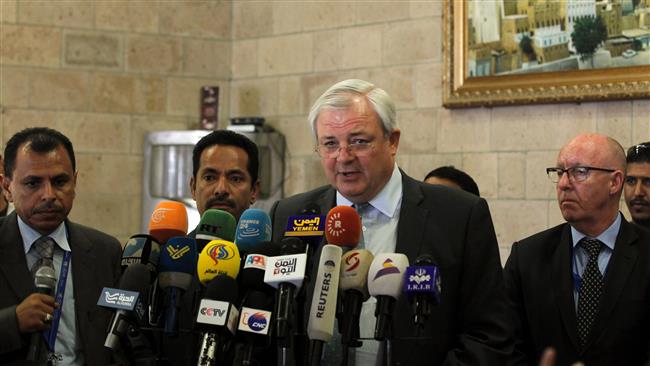Yemen could face famine if no immediate action taken: UN officials
United Nations officials have warned about the dire humanitarian situation in Yemen in the wake of the nearly two-year-old Saudi war in the impoverished Arab country, stating that Yemen could face famine this year.
“The conflict in Yemen is now the primary driver of the largest food security emergency in the world," UN Under-Secretary-General for Humanitarian Affairs Stephen O'Brien told the Security Council on Thursday.
"If there is no immediate action, famine is now a possible scenario for 2017,” he pointed out.
O'Brien also expressed sorrow over the plight of Yemeni children, saying a child under the age of 10 is dying every 10 minutes of "preventable causes."
The top UN official further warned that grain silos will run out of storage within the next few months because foreign banks no longer conduct financial transactions with many of the country's commercial banks.

'Tragic consequences of Saudi airstrikes'
UN Special Envoy to Yemen Ismail Ould Cheikh Ahmed, for his part, told the Security Council that the “dangerous” upsurge in Saudi airstrikes and fighting between Houthi Ansarullah fighters and Saudi-sponsored militiamen loyal to resigned Yemeni president Abd Rabbuh Mansur Hadi are having “tragic consequences for the Yemeni people.”
Ould Cheikh Ahmed also criticized Hadi for rejecting his peace proposals.
“Hadi continues to criticize the proposals without agreeing to discuss them and this will hinder and impede the path towards peace,” the UN envoy told the Security Council.
Read more:

The UN humanitarian coordinator for Yemen, Jamie McGoldrick, says the conflict has claimed the lives of 10,000 people and left 40,000 others wounded in the country.
McGoldrick told reporters in Sana’a earlier this month that the figure was based on lists of victims gathered by health facilities and the actual number might be higher.
The Saudi war on Yemen, which local sources say has killed at least 11,400 people, was launched in an unsuccessful attempt to reinstate the former government.
The Saudi war has also taken a heavy toll on the country’s facilities and infrastructure, destroying many hospitals, schools and factories.

US military launches renewed strikes on various regions across Yemen

US jets carry out more aggression against Yemen

Yemen's president orders nationwide ban on all US products
VIDEO | Araghchi arrives in Oman for US talks as Iran says termination of inhumane sanctions ‘priority’
VIDEO | Iran transforms Qeshm Island into Persian Gulf bunkering hub
Norway establishes diplomatic ties with State of Palestine amid Israel's Gaza genocide
‘Foremost priority’: Iran says ‘ready’ to forge greater understanding between Pakistan, India
Ukraine may have to 'give up land' to Russia to secure peace: Kiev mayor
VIDEO | UN blasts Israeli settler deadly violence as settlers storm West Bank town, desecrate shrines
Lebanese parliament speaker rejects disarmament of Hezbollah amid Israeli aggression
China supports Iran’s peaceful nuclear program, diplomatic engagement: Envoy














 This makes it easy to access the Press TV website
This makes it easy to access the Press TV website